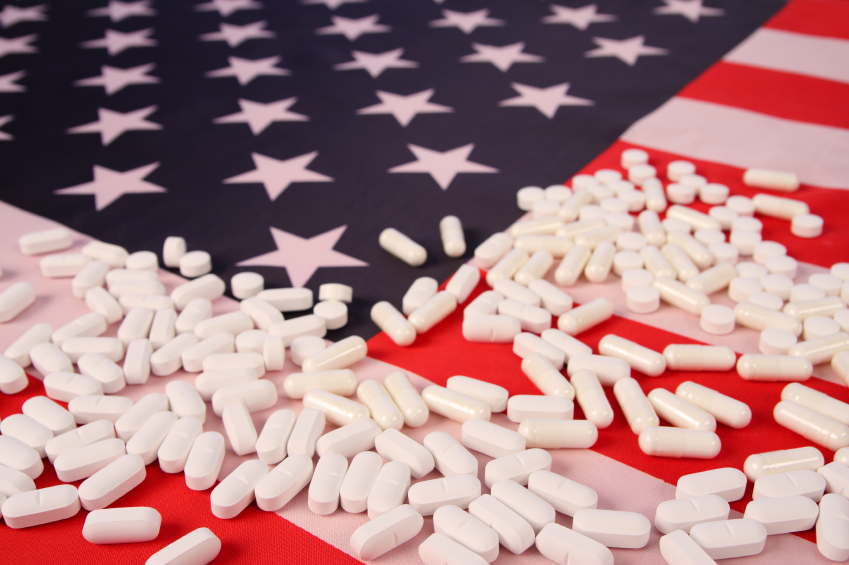Many of Big Pharma’s overpriced medications developed with taxpayer-funded research
01/22/2017 / By Vicki Batts

Big Pharma has been subject to immense scrutiny for quite some time now. Government inquiries of the industry date back to 1959, with Congress having launched over 50 individual hearings to investigate their practices. These hearings have reached the same conclusion: that Big Pharma is making huge profits at the expense of the American people. And yet, for some reason, the government has yet to do anything to put a stop to this nonsense.
In almost 60 years, since the investigations of Big Pharma began, Congress has never passed any kind of legislation to prevent the pharmaceutical industry from charging exorbitant prices — even for products that were developed with taxpayer dollars. (RELATED: Find out more about Big Pharma at Medicine.news)
Corporate greed keeps life-saving drugs from veterans
Just three years ago, in 2014, the Senate Subcommittee on Primary Health and Aging held a hearing to investigate the skyrocketing price of generic drugs. Drug prices have continued to increase since then, of course.
The following year, Gilead came under fire for their outlandish drug prices — most notably, the sky-high costs of their drugs for hepatitis C. One drug, Solvaldi, was actually developed by a research scientist from the Department of Veterans’ Affairs. After being acquired by Gilead, the product was priced so high that the VA — which paid to develop the drug — could not afford to give the pills to their own patients.
Gilead felt that it was fair for them to charge $1,000 per pill for a drug that they themselves had not even created. The retail price for a 12-week Solvaldi treatment is a sickening $84,000; even with a 50 percent discount, the VA was still unable to afford treatment for many sick veterans that contacted Hep C while overseas during the Vietnam War.
Support our mission to keep you informed: Discover the extraordinary benefits of turmeric gummy bears and organic "turmeric gold" liquid extract, both laboratory tested for heavy metals, microbiology and safety. Naturally high in potent curcuminoids. Delicious formulations. All purchases support this website (as well as your good health). See availability here.
Only the lowest of the low could sleep at night, knowing that their price-gouging was preventing veterans from getting much-needed medical care.
Don’t worry, it gets worse.
Dr. Raymond Schinazi, the drug’s creator — owner of Pharmasett and at the time of the drug’s creation, Senior Research Scientist of the VA in Atlanta — admitted in a 2013 trade publication that an entire 12-week treatment of Solvaldi only cost $1,400 to make. A report from Americans For Tax Fairness states that Schinazi and his private company received millions in federal grant money to conduct research and develop treatment for Hep C.
Schinazi sold his company to Gilead in 2012. Shortly after acquiring it, Gilead saw fit to raise the price of the drug — to nearly 60 times what it costs to produce.
Following their investigation of Gilead, government officials concluded that the only explanation for the explicit price-gouging was corporate greed: they charged as much as possible, purely because they could.
(Related: Read more about rigged pricing, rigged polls and rigged systems at Rigged.news)
Other drugs have been created with taxpayer money
ABC News reported that the federal government’s National Institutes of Health (NIH) spent some $484 million dollars on developing a cancer drug called Taxol. They entered an agreement with Bristol-Myers Squibb (BMS) in 1993. A 2003 report by the Government Accounting Office (GAO) revealed that the federal government recovered a mere $35 million in royalty payments — even though BMS had racked up profits to the tune of $9 billion — in just 9 years. That’s a billion dollars a year in profits! And yet it was our tax dollars that paid for all that research.
The GAO report showed that the NIH spent almost half a billion dollars to research and create a new drug, and they then signed a contract that inevitably allowed a pharmaceutical company to patent it and prevent generics from entering the marketplace for years. It is beyond comprehension and totally reprehensible.
Corruption and greed in the pharmaceutical industry are hardly a thing of the past. More recently, pharmaceutical giant Mylan was called out for their price-gouging of the life-saving EpiPen. After acquiring the EpiPen patent — which was initially developed for the Department of Defense — Mylan increased the price of the product by 461 percent over the course of nine years.
There are countless other instances of wrongdoing within the pharmaceutical industry, particularly as it pertains to government regulation and policy. Clearly, this is an issue that needs to be resolved — and should have been remedied years ago during or after one of the 50 investigations the government has conducted.
Sources:
Tagged Under: Big Pharma, corruption, Price gouging




















